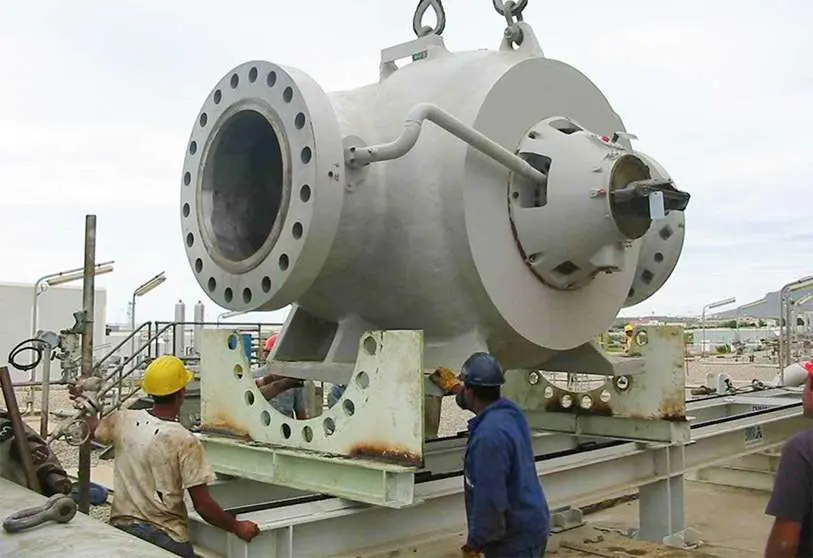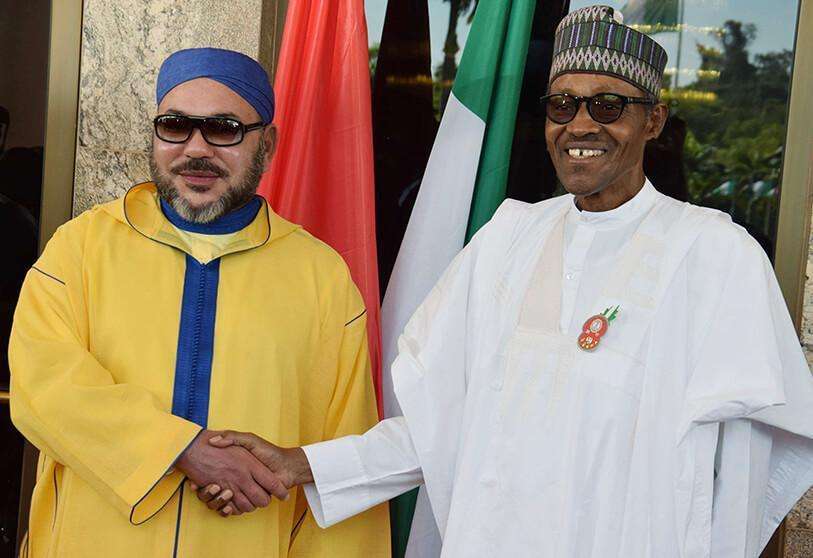Marruecos y Nigeria reanudan la inversión del gasoducto

Nigeria has the largest proven gas reserves in Africa at 5.66 trillion cubic metres. The discovery was enough for African nations on the continent's Atlantic flank to negotiate to strengthen their economies and thus the living standards of their citizens.
The plan is being carried out by several companies, such as the Australian company Worley, which is involved in the construction of sustainability projects, among others. Likewise, several institutions from both countries are part of the plan, such as the Moroccan National Office of Hydrocarbons and Mines (ONHYM), the Nigerian National Petroleum Corporation (NNPC), the Economic Community of West African States (ECOWAS) and the Senegalese Petroleum Society (PETROSEN).
It will be a gas movement channel over 7,000 km long, connecting the two participating countries and crossing 13 African countries. The project plans to build on existing infrastructure to reach Côte d'Ivoire, Liberia, Sierra Leone, Guinea Conakry, Guinea Bissau, Gambia, Senegal, Mauritania and finally Morocco to Tangiers. This project is also an essential element for African countries, as it has an economic dimension, according to which these countries would gain in productivity with functioning industries. These countries, which will have their share of gas, will be able to change their energy mix. In this way, energy will be paid for at a lower cost and some sectors, such as electricity and industry, will be relieved of their high consumption payments. This, in turn, will allow markets to come together and mobilise financing for the development of the project.

The Nigeria-Morocco Greater Gas project entered the final stages last month, after Morocco signed a memorandum of understanding with the ECOWAS Group and Nigeria to complete the giant project, which will be able to transport gas to Europe by 2047. The memorandum was signed in Rabat by the director general of Morocco's Office of Hydrocarbons and Minerals, Amina Benkhadra, the representative of the Economic Community of West African States (ECOWAS), Sediko Douka, and Mallam Mele Kolo Kyari, executive director of the NNPC.
The construction of the pipeline will lead to a link between all the countries where the gas will flow, forming a friendly community among all West African nations. "This is a project that is moving forward, that will be a model of regional integration and that will change the face of the Atlantic and East Atlantic Africa," said Nasser Bourita, the Alawi Foreign Minister. The two sides stressed that their good ties are thanks to the great friendship between King Mohammed VI of Morocco and President Muhammadu Buhari of Nigeria. Security policy experts say that the infrastructure between Nigeria and Morocco is the most viable, because it takes into account geopolitical challenges, recalling that this pipeline, which is being built on the west coast, will avoid conflicts between some countries.
Moreover, the pipeline is one of two initiatives promoted by the Nigerian company, in an attempt to capitalise on European demand for new sources of natural gas, following the Russian operation in Ukraine. The government says it wants to further monetise this resource for domestic use and export, to replace crude oil as the country's main feedstock and, according to the chief executive of the Nigerian National Petroleum Corporation Kyari, to quadruple gas production in the next four years.
Experts believe that Western countries, including Spain, prefer the arrival of Nigerian gas through Moroccan territory so that the current problem between Algeria and Spain is not repeated. They pointed out that African and Nigerian officials did not bet on Algeria to achieve the project, especially because it needs large funds and the other project is supported by the Economic Community of West African States.








